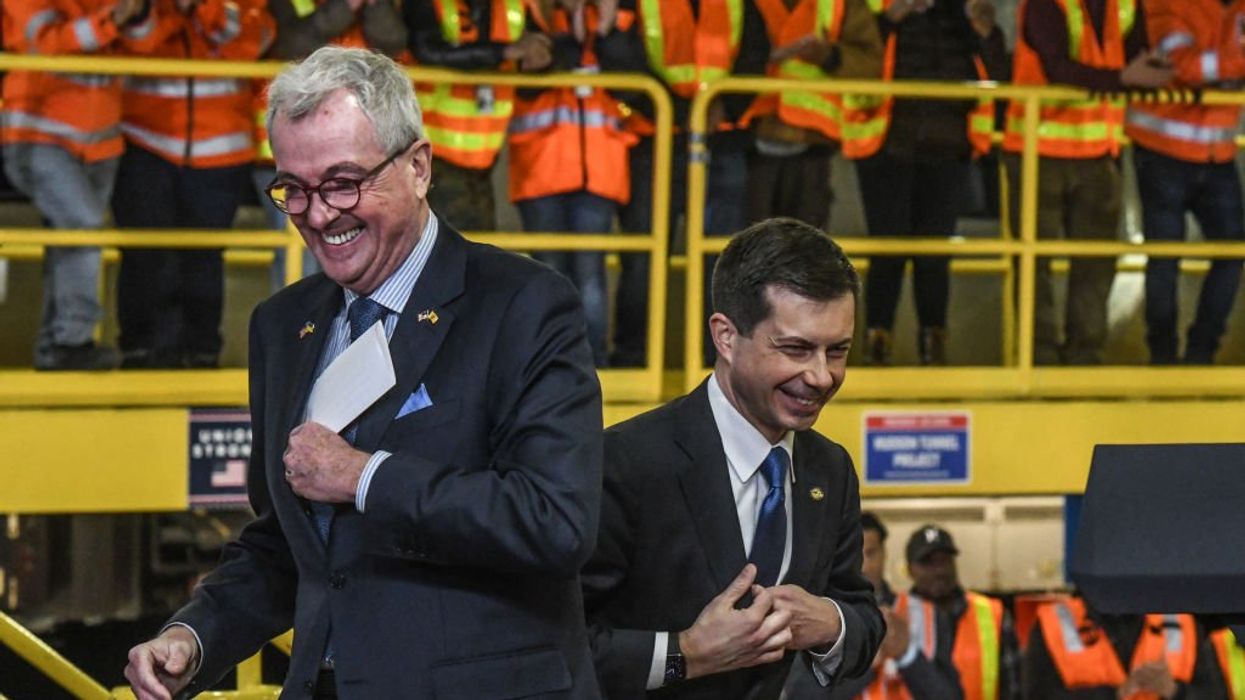
© 2024 Blaze Media LLC. All rights reserved.
Stocks were down today:
▼ Dow: -0.11 percent▼ Nasdaq: -0.18 percent
▼ S&P: -0.17 percent
Precious metals:
▼ Gold: -1.03 percent to $1,696.17 an ounce▼ Silver: -1.91 percent to settle at $32.90
Commodities:
▼ Oil: -0.60 percent
Markets were down because:
Stocks closed little changed Tuesday on Wall Street as budget talks continued in Washington.
The Dow Jones industrial average closed down 13.82 points at 12,951.78 after trading in a narrow range of just 82 points. The Standard and Poor's 500 was down 2.41 points to 1,407.05. The Nasdaq composite was down 5.51 at 2,996.69.
Investors are waiting on developments from Washington in the budget talks, which are aimed at avoiding the "fiscal cliff." That refers to a series of sharp government spending cuts and tax increases that begin to kick in Jan. 1 and could eventually cause a recession.
President Barack Obama said Tuesday that a proposal by House Speaker John Boehner on Monday was "still out of balance." Obama, in an interview with Bloomberg Television, insisted on higher taxes for wealthy Americans.
Republicans, led by Boehner, have balked at Obama's proposal of $1.6 trillion in additional taxes over a decade, and Monday called for increasing the eligibility age for Medicare and lowering cost-of-living increases for Social Security benefits.
"Politicians are doing their negotiating dance. They both start out on their extreme positions. The question is how long until they get into the middle," said Rex Macey, chief investment officer at Wilmington Trust Investment Advisors in Atlanta.
Among stocks making big moves, Darden Restaurants, owner of the Olive Garden, Red Lobster and LongHorn Steakhouse restaurant chains, fell $5.02, or 9.6 percent, to $47.40 after cutting its profit forecast for fiscal 2013.
Separately, analysts at Credit Suisse said that restaurant-goers would "quickly lose their appetite" if the U.S. went over the "cliff" because the job cuts that would likely follow would curb discretionary spending.
Stock trading will likely become increasingly more volatile the longer talks progress without a deal, said JJ Kinahan, chief derivatives strategist at TD Ameritrade.
"If you looked back a week ago, most people were under the impression that we'd get this solved fairly quickly," Kinahan said. "There hasn't really been any positive news, or any positive movement, in the last few days, and with that it makes people more and more nervous."
Despite the slow pace of the talks, the stock market has gained back nearly all of a post-election slide caused by concerns about the fiscal impasse. The S&P is now about 1.5 percent below where it was on Nov. 6. In mid-November it had dropped as much as 5 percent.
Bill Gross, the managing director of fund manager PIMCO, told investors in his regular newsletter that they should expect annualized bond returns of 3 to 4 percent at best in the future and stock returns that are "only a few percentage points higher."
The S&P 500 has risen 12 percent this year. High debt levels and slowing global growth will weigh on the economy, Gross said.
The yield on the 10-year Treasury note fell 1 basis point to 1.61 percent.
The Associated Press contributed to this report.
Want to leave a tip?
We answer to you. Help keep our content free of advertisers and big tech censorship by leaving a tip today.
Want to join the conversation?
Already a subscriber?
more stories
Sign up for the Blaze newsletter
By signing up, you agree to our Privacy Policy and Terms of Use, and agree to receive content that may sometimes include advertisements. You may opt out at any time.
© 2024 Blaze Media LLC. All rights reserved.
Get the stories that matter most delivered directly to your inbox.
By signing up, you agree to our Privacy Policy and Terms of Use, and agree to receive content that may sometimes include advertisements. You may opt out at any time.


